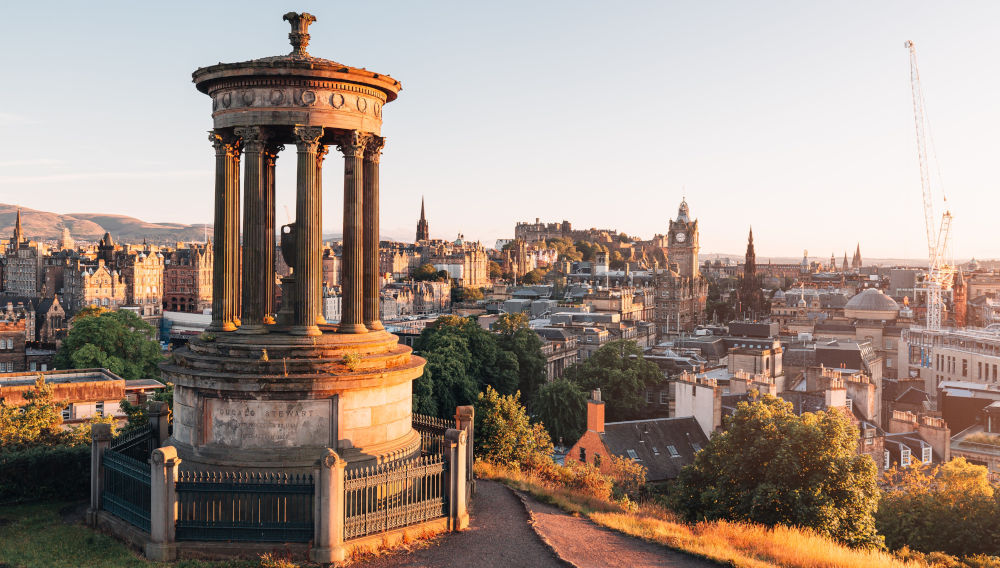Heineken to close historic Caledonian Brewery in Edinburgh
United Kingdom | It makes you wonder why Heineken has decided to close its only brewery in Scotland, when all the world is talking about the environmental impact of “food miles” and manufacturers’ carbon footprint. Is not the concept of consolidating beer production in one or two breweries per market outdated, as it means that beer is shunted up and down the country to reach consumers?
At the end of May 2022, Heineken said it will close the historic Caledonian Brewery in Edinburgh, one of the oldest in the UK, saying it is not financially viable to upgrade its ageing facilities. It has entered into consultation with its 30 workers there.
The decision will end more than 150 years of brewing tradition at the Slateford Road site, following a decade of declining output. None of the usual insiders seem to know how often and how much beer is brewed at Caledonian these days.
Already, Heineken has reached an agreement with rival brewer Greene King for the beers made at Caledonian to be produced at Greene King’s Belhaven Brewery in Dunbar, some 50 km to the east of Edinburgh.
The Dutch brewer, whose UK headquarters is in Edinburgh, has owned Caledonian since 2008, when it teamed up with Carlsberg to acquire brewer Scottish & Newcastle. S&N had acquired Caledonian in 2004.
Once Caledonian is closed, Heineken will produce the bulk of its beers for the UK in two breweries: the Royal brewery in Manchester and the John Smiths brewery in Tadcaster. In addition, Heineken owns a stake in the London craft brewer Beavertown, which operates a 500,000 hl brewery and fully owns Brixton Brewery, also from London.
Breweries get the thumbs down
Heineken is not the only one to shutter breweries. Before it was sold, S&N had closed the Fountain Brewery, Edinburgh (2004) and the Tyne Brewery, Newcastle-upon-Tyne (2005). Heineken reduced S&N’s estate further by discontinuing the Federation Brewery, Gateshead (2010), and the Berkshire Brewery, Reading (2010).
Most likely, Heineken saw that it would cost plenty of money to kit out Caledonian in such a way that it will reach Heineken’s environmental targets. As Heineken’s CEO Dolf van den Brink admitted at the 2021 Brewers Forum (hosted by the Brewers of Europe), its breweries outside of Europe are far newer and will attain environmental targets more easily than some of its breweries in Europe.
For Edinburgh the closure of the Caledonian brewery is still a loss. It was one of the few remaining breweries in a city that was once home to more than 40. The red-brick Victorian building was saved from demolition in the early 1980s, after being listed as a site of historical significance.
A number of smaller craft brewers have sprung up in recent years, though not on the same scale. Craft brewer Innis & Gunn is building a 400,000 hl brewery on the Heriot-Watt university campus.
Brewery closures: the list grows longer
The news makes Caledonian the latest in a series of breweries to face closure since the pandemic hit. Recent casualties have included London Fields, whose owner Carlsberg has closed its doors and put it up for sale, as well as a clutch of smaller independents such as Fallen, Beatnikz Republic and Kelham Island, the trade publication The Grocer reported.
Australian brewer Lion is selling its Fourpure and Magic Rock craft breweries and leaving the UK market to focus on the US, where it owns craft brewers New Belgium and Bell’s.
Keywords
United Kingdom environment company closures company news production figures
Authors
Ina Verstl
Source
BRAUWELT International 2022

